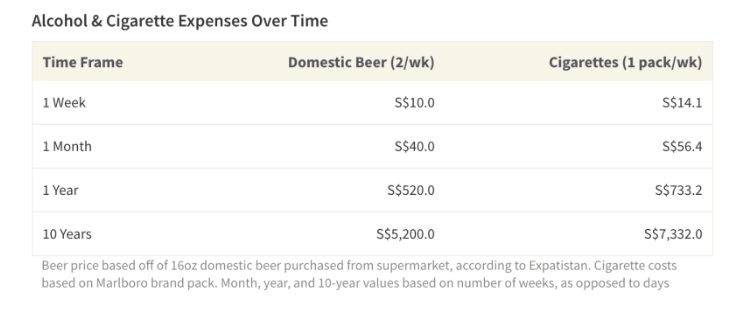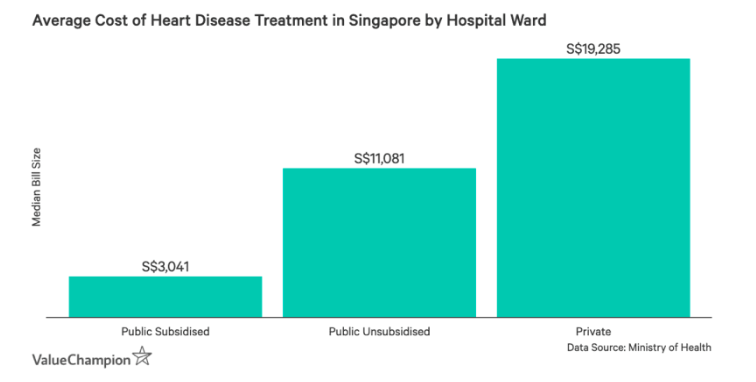The cost of vice: How expensive are alcohol & cigarettes in the long-run?

The consumption of alcohol and cigarettes is relatively common in Singapore. Unfortunately, these habits come at a surprisingly high cost.
On top of purchasing the products themselves-which can add up fairly quickly-consumers also risk negative health impacts and even a decrease in workplace productivity.
Overall, these expensive behaviours can have a long-term impact far beyond what most people might expect.
SMOKING & DRINKING CAN COST MORE THAN A 1-WEEK VACATION
To begin with, alcohol and cigarettes are heavily taxed goods in Singapore, which already makes them quite expensive to purchase.
When considered over a year, the costs of such habits can easily add up to hundreds of dollars-or even higher for those who regularly partake in both.
While some credit cards may offset such costs with cashback or miles, spending on alcohol and cigarettes ultimately diverts funds away from greater opportunities, or even potential savings.
Within just 1 year, a frequent drinker and smoker might spend over $1,200 on products alone. This amount could alternatively fund a 1-week vacation within Asia Pacific.

HANGOVERS & CIGARETTE BREAKS CAN COUNTER CAREER ADVANCEMENT
It's no surprise that hangovers are a common side-effect of alcohol consumption.
Research has shown that hangovers are responsible for a drastic decrease in productivity and creativity as well as impaired memory function as a result of migraines and exhaustion.
These factors can also lead to increased absenteeism, which could compromise chance of progression at work.
SMOKING CIGARETTES CAN ALSO COMPROMISE PRODUCTIVITY
While taking a smoke break offers a respite from work, this break often comes at the cost of the employer. In fact, taking 3-5 smoke breaks of about 10 minutes each adds up to 30-50 minutes off work per day.
Across 5 business days, this comes to 4 hours per week, or 16 hours per month. This is undoubtedly expensive for an employer in terms of lost work, and can hold back an employee's success in completing their tasks.
COSTS TO HEALTH ARE HIGH & LIFELONG
Both alcohol and cigarettes have been shown to negatively impact users' health-which is detrimental both physically and in monetary cost. To start, drinking alcohol can be damaging even when not in excess, which may suggest heightened risks for all who partake.
Research has attributed 3.6 per cent of all cancers worldwide to alcohol, and in 2016, the UK government stated that there is no safe amount of alcohol consumption.
Negative health repercussions increase significantly after 2 drinks a day for men or 1 drink for women.

Potential short and long-term consequences include memory impairment, high blood pressure, liver cirrhosis, gastric problems and more.
Cigarette smoking also has a wide range of negative health impacts, from lung cancer and coronary artery disease to heart attack, stroke and more. Long-term issues resulting from smoking and alcohol consumption can be quite expensive to treat-even with public subsidies and health insurance-due to a lifelong need for medication and medical follow-ups.
CONCLUSION
Ultimately, the cost of cigarettes and alcohol can become exorbitant for heavy users in the long term.
By reducing consumption, it's possible to significantly save on spending, lead a better work life, and even lessen the risks of major health issues.
Time and resources spent on these vices might instead be devoted to exercise, family time and other forms of entertainment.
This article was first published in ValueChampion.